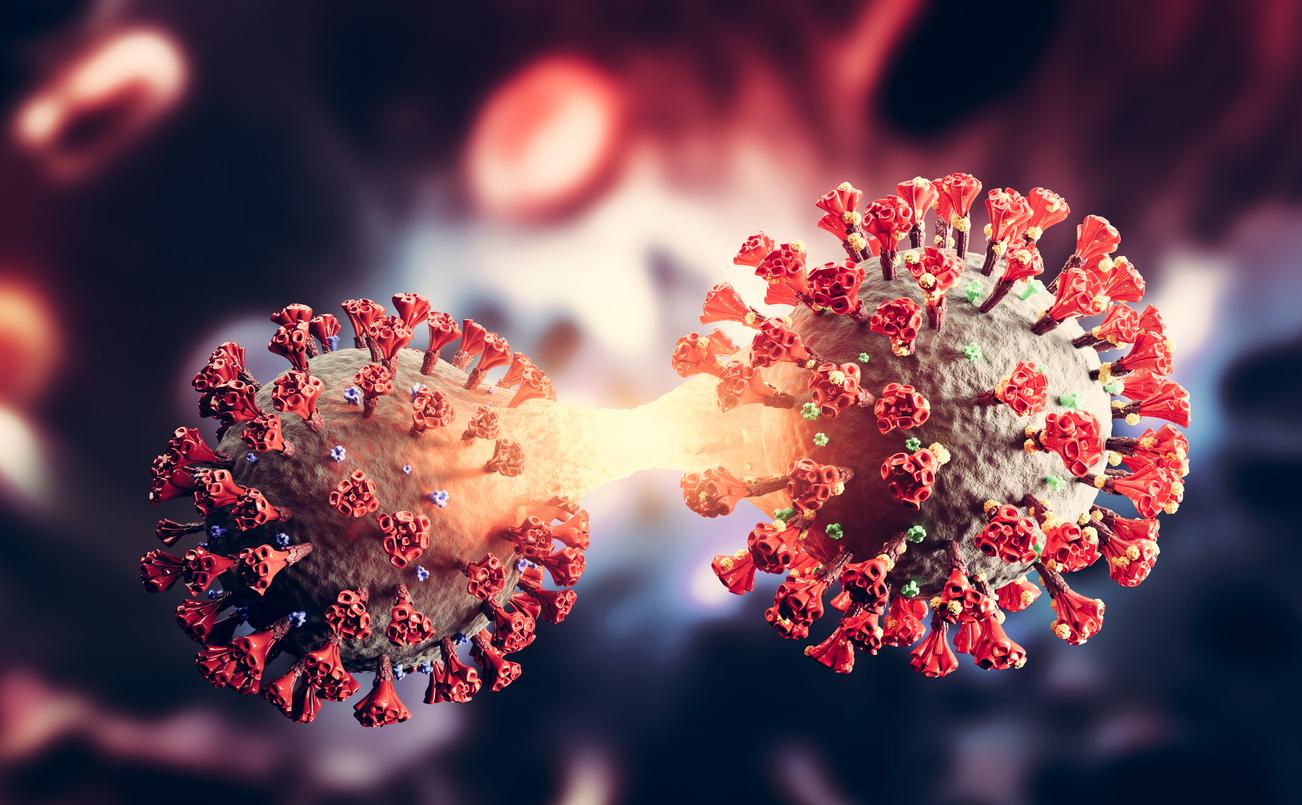Since the appearance of the Covid three years ago, it has continued to adapt. The sub-variant Omicron which became the majority in the world in 2021, has since given way to several “grandchildren”, in particular BA.5still ubiquitous to this day in France with 71% of contaminations.
But new strains appear, in particular two, particularly monitored by the WHO (even if they are not categorized “variant of concern”). It’s about variant XBB.1.5 (known as “Kraken”) which is currently spreading in the United States and from variant CH.1.1 (known as “Orthrus”) present in the UK. It is the latter that we will focus on.
What do we know about the CH.1.1 subvariant?
This BA.2 sub-lineage was first identified last November in south-west Leicestershire in the United Kingdom and according to British health authorities, it represented 16% of contaminations on December 25, then 20% in January. For the time being, its prevalence remains “moderate”. Also in January, BQ.1.5 accounted for 51% of the analyzed sequences, leaving uncertainty as to which (BQ.1.5 or CH.1.1) will take the place of BA.5.
“Two variants, CH.1.1 and XBB.1.5, appear to have a growth advantage in the UK, writing UKHSA in an epidemiological point published on January 11.
“The risk assessment conducted by the UKHSA in conjunction with academic partners found that CH.1.1 and XBB.1.5 are currently the variants most likely to take over from BQ.1 as the next dominant variant in the UK. Kingdom, unless new new variants appear.”
Should we be worried about it?
If these strains seem very transmissible (especially XBB.1.5 qualified by the WHO as “most transmissible subvariant detected so far”), there is currently no signal of greater severity.
Dr Meera Chand, director of clinical and emerging infections at UKHSA, warned that get vaccinated against covid remains the “best defense” against severe forms.
In Franceaccording to the latest variant analysis point of Public Health France, these variants circulate quietly: CH.1.1 represents only 1.3% of cases of contamination and XBB.1.5 between 1 and 1.5%.
Sources:
- SARS-CoV-2 variants of concern and variants under investigation in England, UKHSA, 11 January 2023
- Analysis of variants, Public Health France, January 13, 2023

















